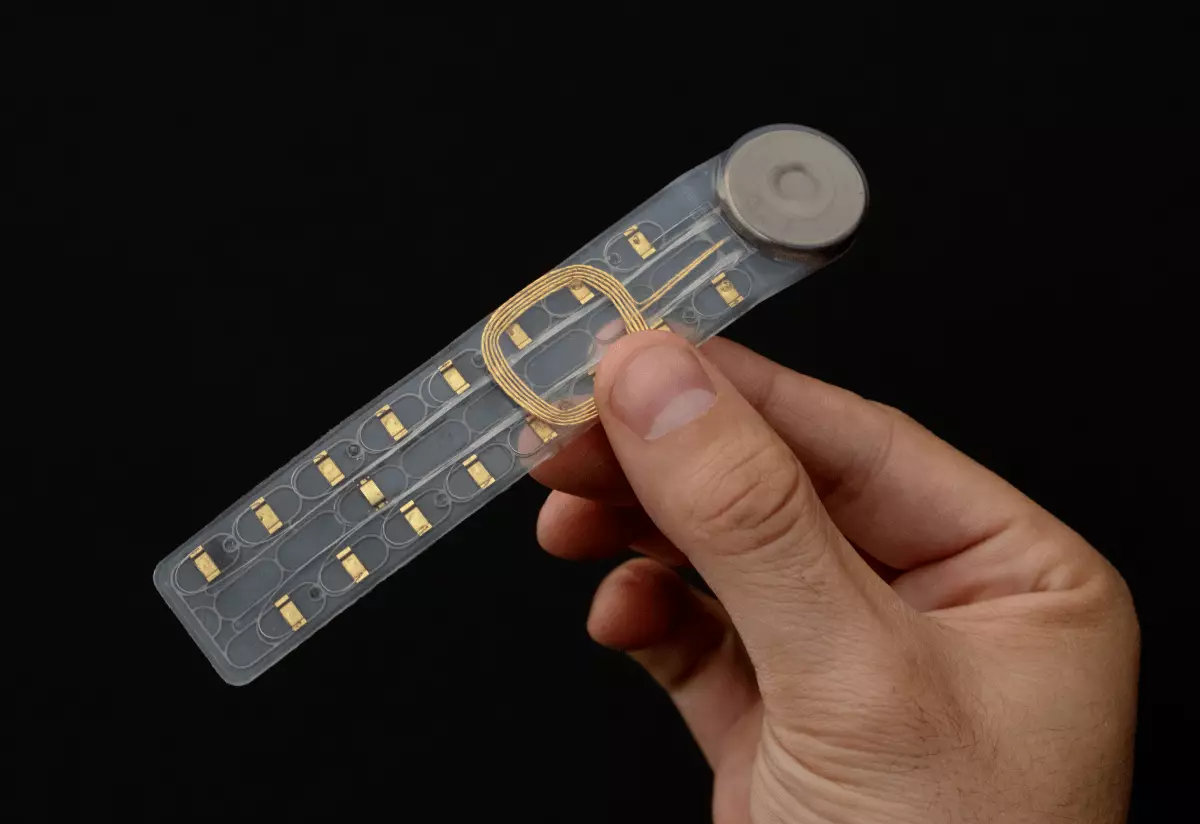In a world where science fiction steadily transitions into our reality, the intersection of technology and human anatomy represents a frontier filled with vast potential. One startup that is making significant inroads in this realm is Phantom Neuro. This innovative company has recently secured $19 million in funding to further its development of a groundbreaking wristband-like implant designed to restore mobility for amputees. With its promise of enhancing the functionality of prosthetic limbs, it brings the dreams of many — including amputees yearning for a semblance of normalcy — closer to fruition.
What distinguishes Phantom Neuro from its contemporaries is its commitment to the human experience. By harnessing the residual nerve endings in amputated limbs, its technology has taken a significant leap forward, enabling prosthetic arms to respond to the mind’s intentions. The startup’s “Phantom X” software boasts an impressive 94% accuracy in interpreting nerve impulses, a figure that has been shown to rise even further when the device is implanted. Amputees stand to regain as much as 85% of their lost functionality with just a quick calibration, making this an exciting development in assistive technology.
A Promising Start for Phantom Neuro
Phantom Neuro’s accomplishments thus far are commendable, encapsulated in their recognition as a “Breakthrough Device” by the FDA. This classification signifies that their product has the potential to address serious medical conditions while advancing patient safety and efficacy. Similarly, their participation in the FDA’s medical device accelerator program highlights their focus on efficiently moving towards commercialization, a crucial element for any startup looking to introduce revolutionary technologies into the healthcare ecosystem.
Investors seem to resonate with Phantom Neuro’s vision. With a diverse range of backers, including medical device powerhouse Ottobock, the startup has amassed a total of $28 million since its inception. Each investor brings a wealth of experience and insight, contributing to the startup’s strategic growth and reinforcing the importance of teamwork in the rapidly evolving field of medical technology.
Dr. Connor Glass: The Visionary Behind Phantom Neuro
At the helm of this innovative company is Dr. Connor Glass, whose transformative journey from aspiring military personnel to neurosurgeon and then to tech entrepreneur underscores the power of adaptability in realizing one’s purpose. Initially, Glass sought to make a large-scale impact through military service but faced challenges that diverted his path toward medicine. His unique experiences, combined with an early passion for brain surgery, catalyzed a shift in focus.
Dr. Glass’s firsthand exposure to surgical environments provided him with critical insights that would later shape Phantom Neuro’s technology. This understanding propelled him into the complex world of brain implants, where he encountered the inherent limitations of existing systems. The cumbersome, invasive nature of traditional implants fueled his quest to find more scalable, less invasive solutions through a deeper exploration of the human nervous system, ultimately leading to the conception of Phantom Neuro.
Emphasizing Human-Centric Innovation
Phantom Neuro’s technological quest raises an essential question: to what extent are individuals prepared to embrace implants within their bodies for enhanced quality of life? The concept of neural interfaces is not unprecedented; there have been successful precedents in spinal cord stimulators and other implants. Nevertheless, the willingness to adopt these invasive solutions will hinge on public perception, which is influenced by both cultural attitudes and the inherent value these technologies promise to deliver.
The startup intends to roll out its technology specifically for prosthetic arms first, with aspirations of broadening its application to prosthetic legs and beyond. The prospect of using this technology for remotely controlling devices could revolutionize not just rehabilitation but also fields like robotics and artificial intelligence, as machines learn to mimic human movement through advanced neural data processing.
A Collaborative Approach to Advancement
A noteworthy challenge lies in the necessity of synchronized research and development between Phantom Neuro’s technology and the devices that utilize it — in this case, the prosthetics. The collaboration with Ottobock represents a strategic alliance, bridging the gap between advanced neural interface technology and the actual prosthetic application. Dr. Arne Kreitz, CFO of Ottobock, underlines the importance of this partnership, reflecting a shared ambition to innovate in a sector that fundamentally affects human lives.
Phantom Neuro’s direction signifies an impressive understanding of the hurdles faced in integrating emerging technologies into practical, usable products. The focus on a user-friendly approach will be pivotal in democratizing access to these high-tech solutions for amputees and changing lives in the process. What lies ahead could be a significant leap towards human enhancement, reshaping the narrative of disability and potential in an increasingly digital world.

